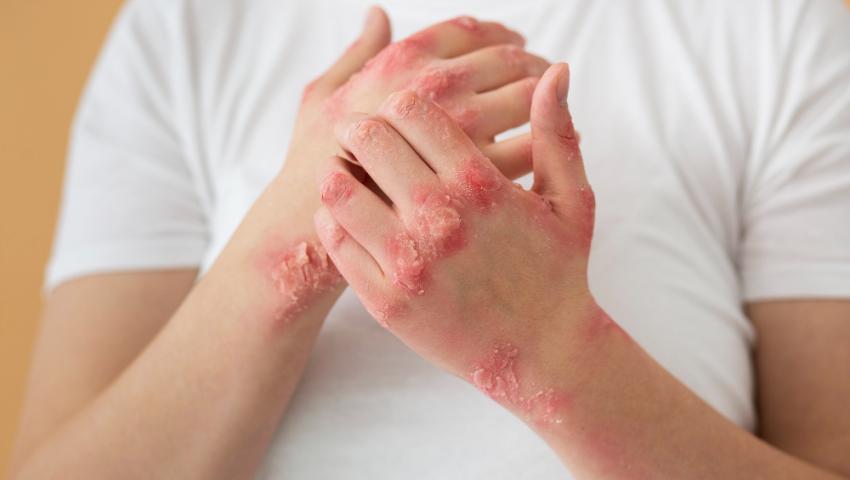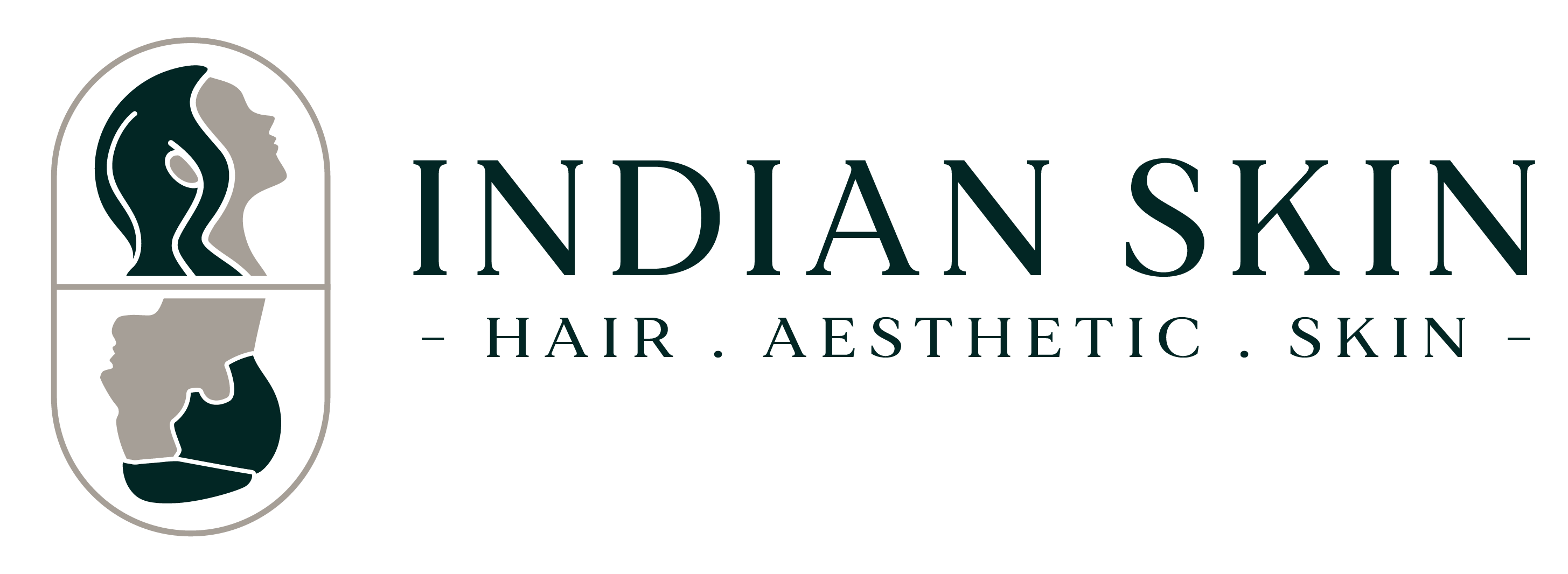
Psoriasis
Psoriasis is a chronic autoimmune skin condition that accelerates the life cycle of skin cells, causing them to build up rapidly on the surface. This leads to thick, scaly patches of skin that can be itchy, painful, and often embarrassing. At Indian Skin Clinic, we provide expert care under the leadership of Dr. Ayesha Faizan, offering evidence-based and personalized treatments to manage psoriasis effectively.
Types of Psoriasis
- Plaque Psoriasis (Most common)
- Thick, red patches with silvery scales, commonly on the scalp, knees, elbows, and lower back.
- Guttate Psoriasis
- Small, drop-shaped lesions, often triggered by infections like strep throat.
- Inverse Psoriasis
- Smooth, red patches in skin folds like under the breasts, around the groin, or buttocks.
- Pustular Psoriasis
- White pustules (blisters filled with pus) surrounded by red, inflamed skin.
- Erythrodermic Psoriasis (Severe and rare)
- Widespread redness, peeling, and severe pain or itching.
- Nail Psoriasis
- Affects nails, causing pitting, discoloration, and separation from the nail bed.
Symptoms
- Skin Symptoms: Red, scaly patches; thickened or cracked skin.
- Itching/Burning: Varying from mild to severe.
- Nail Changes: Thickening, ridges, or crumbling nails.
- Joint Pain: Psoriatic arthritis may develop in some cases.
Causes and Triggers
Psoriasis is not contagious and is caused by an overactive immune response. Triggers include:
- Stress
- Infections
- Skin injuries (e.g., cuts, scrapes)
- Certain medications (e.g., lithium, beta-blockers)
- Weather (cold, dry climates)
- Smoking and alcohol consumption
Treatment Options
At Indian Skin Clinic, we tailor treatments to the severity of psoriasis and your lifestyle needs. Options include:
1. Topical Treatments
- Corticosteroids: Reduce inflammation and scaling.
- Vitamin D Analogues: Slow skin cell growth (e.g., calcipotriol).
- Salicylic Acid: Exfoliates and softens plaques.
- Coal Tar: Reduces itching and scaling.
- Moisturizers: Help hydrate and repair the skin barrier.
2. Phototherapy (Light Therapy)
- How it works: Exposes the skin to UVB light, reducing inflammation and slowing cell turnover.
- Best for: Moderate to severe cases or widespread psoriasis.
- Benefits: Safe, effective, and non-invasive.
3. Systemic Medications
For severe cases affecting large areas of the body:
- Oral Medications: Methotrexate, cyclosporine, or acitretin.
- Biologics: Injectable medications targeting specific parts of the immune system (e.g., TNF-alpha inhibitors like adalimumab or IL-17 inhibitors).
4. Lifestyle Modifications
- Stress management through meditation or yoga.
- Avoiding triggers like smoking and alcohol.
- Following a balanced, anti-inflammatory diet.
5. Advanced Therapies
We utilize the latest advancements, including combination treatments for resistant psoriasis.
What to Expect at Indian Skin Clinic
- Consultation: A thorough evaluation by Dr. Ayesha Faizan to determine the type and severity of your psoriasis.
- Customized Plan: Treatment plans designed to suit your specific needs, skin type, and lifestyle.
- Ongoing Care: Regular follow-ups to monitor progress and adjust treatment if necessary.
- Supportive Guidance: Tips to manage psoriasis flare-ups and maintain skin health.
Why Choose Us?
- Expertise: Over 14 years of experience in treating chronic skin conditions.
- Advanced Therapies: Access to cutting-edge treatments, including biologics and phototherapy.
- Personalized Attention: Individualized care plans tailored for optimal results.
- Trusted Reputation: Rated 4.9 stars on Google, reflecting our dedication to patient satisfaction.
Take the first step toward controlling psoriasis and regaining confidence. Visit us at our clinics in Dharampeth, Gokulpeth, or Hingna for a consultation today!
-
Expert Care by Dr. Ayesha Faiza
With over 14 years of experience, Dr. Ayesha Faizan has helped countless individuals achieve healthy, radiant skin and hair through personalized treatments designed for optimal results.
-
State-of-the-Art Technology
Equipped with the latest technology and minimally invasive techniques, our clinic ensures high standards of quality and care, delivering effective and safe results to every patient.
"Healthy skin is a reflection of overall wellness."
Dr. Ayesha Faizan, Dermatologistn
Benefits Of Our Services
With a patient-centric approach, our treatments inspire confidence and help you rediscover your inner beauty while prioritizing your overall well-being:
- Exceptional Care: Comprehensive services for your aesthetic and medical needs.
- Emergency-Ready: Equipped to handle complex procedures and surgeries.
- Advanced Medications: We use only the most effective, dermatologist-recommended treatments.
- Cutting-Edge Equipment: All treatments utilize FDA-approved technology for superior results.
At the Indian Skin Clinic, we’re committed to helping you look and feel your best with care that reflects your unique beauty.


